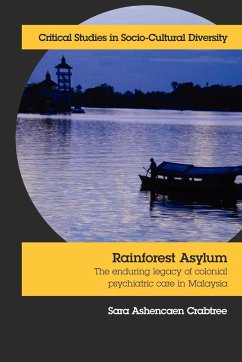Malaysian psychiatric services and policy show some developments similar to those of the West-yet much of the rhetoric that has informed these changes internationally, such as the discourse of service-user empowerment, has yet to be fully embraced within Malaysia itself. The author argues that an important factor here is that psychiatric services in Malaysia retain many of the premises of colonial psychiatry, particularly in relation to attitudes towards mental illness and psychiatric patients. On the other hand, the geographical and cultural location of Malaysian health services introduces features unique to this region (such as the wide diversity of ethnic groups and the continuing popularity of traditional healing practices). Within this diversity exist belief systems and normative values that are not congruent with the colonial premises that continue to cast an influence over service delivery and associated professional attitudes in Malaysia. The author draws extensively on her own research on psychiatric care in Malaysia, in which the narratives of Malaysian service users and psychiatric staff are interwoven with historical accounts of asylum care in Britain and Europe. The similarities across regions and between the past and the present are thus made apparent. The importance of the book goes beyond its interpretation of the Malaysian context. It will interest to anyone seeking to understand other post-colonial societies (for example, Hong Kong, Singapore, Thailand, and India). Although there are differences in history and current developments in relation to attitudes, and the policy and practice of mental health among these countries, we should be aware of the common legacy of the past and its implications for the present and future of their mental health systems. The book will also provide important insights for professionals working in any healthcare system with a culturally diverse client base.








